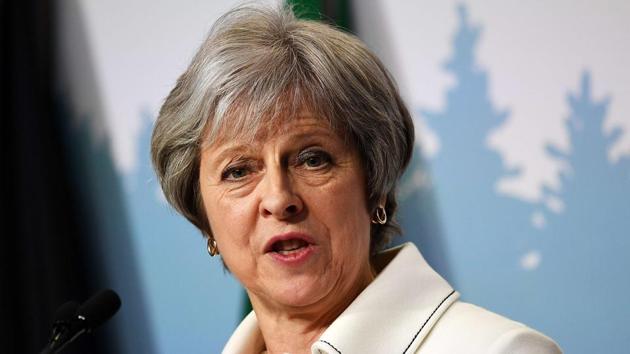PM Theresa May reaches ‘Brexit deal’ with cabinet
The new position of the government is to be formalised in a white paper next week.
Two years after the referendum vote to leave the European Union, Prime Minister Theresa May managed to reach a deal with her own cabinet after a 12-hour meeting, leading to an uneasy truce between pro- and anti-Brexiteers.

Some called the wording of the statement issued after the “summit” on Friday a masterpiece worthy of the legendary Sir Humphrey Appleby, since it is open to convenient interpretation by rival sides.
The new position of the government is to be formalised in a white paper next week.
May got her cabinet to agree to her version of a “soft Brexit”, which means aligning with key aspects of the EU after leaving the group on March 29, 2019. To what extent the position wins support from pro-Brexit MPs and others remains to be seen.
Of more relevance is whether the position will be acceptable,if at all, to Brussels, which has been strongly pushing back against proposals proposed by London so far. Leading companies and others have been clamouring for clarity on the post-Brexit situation.
After marathon discussions in the prime minister’s country residence of Chequers – when ministers were asked to put away their phones – May said the cabinet had “agreed our collective position for the future of our negotiations with the EU”.
She said: “Our proposal will create a UK-EU free trade area which establishes a common rule book for industrial goods and agricultural products…As a result, we avoid friction in terms of trade, which protects jobs and livelihoods, as well as meeting our commitments in Northern Ireland.
“We have also agreed a new business-friendly customs model with freedom to strike new trade deals around the world.”
Brexiteers in the ruling Conservative Party expressed concern at the deal, while those favouring a “soft Brexit” expressed relief. Andrea Jenkyns, MP, complained that “British businesses will continue to be a rule taker from the EU”.
Jacob Rees-Mogg, Tory MP and leader of the influential European Research Group of pro-Brexit Conservatives, said he would not vote for a plan which crossed the red lines set out by May earlier, but wait to see details in the white paper next week.
“This will require legislation and if, when we get the detailed legislation, it turns out that it is a punishment Brexit, that it is keeping us in the European Union in all but name, I will stick to the Conservative Party’s manifesto commitments and will not vote for it,” he said.






